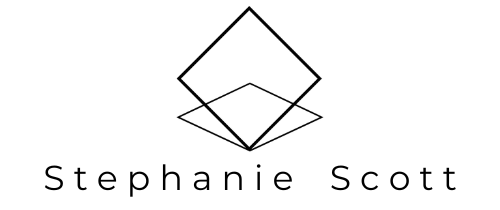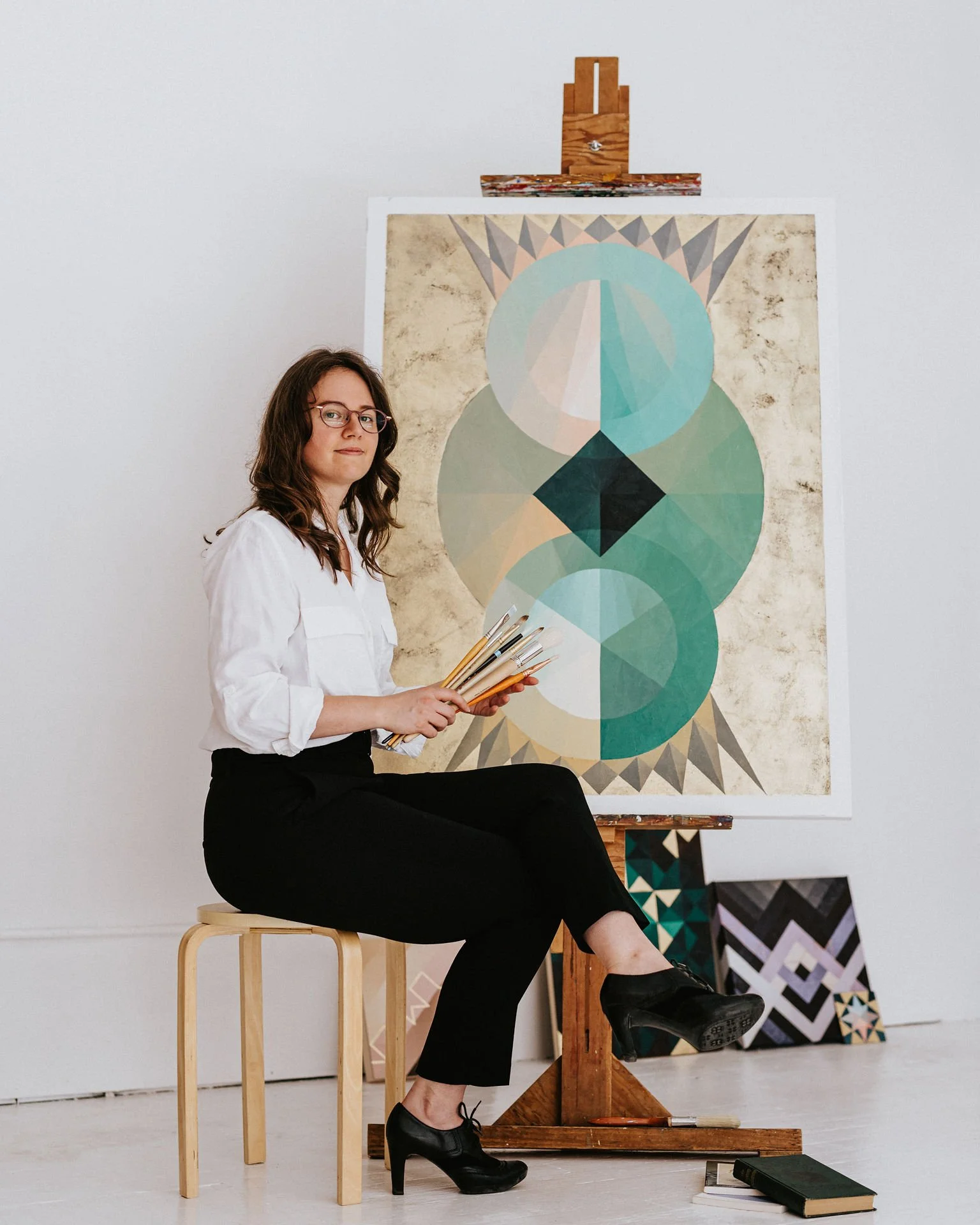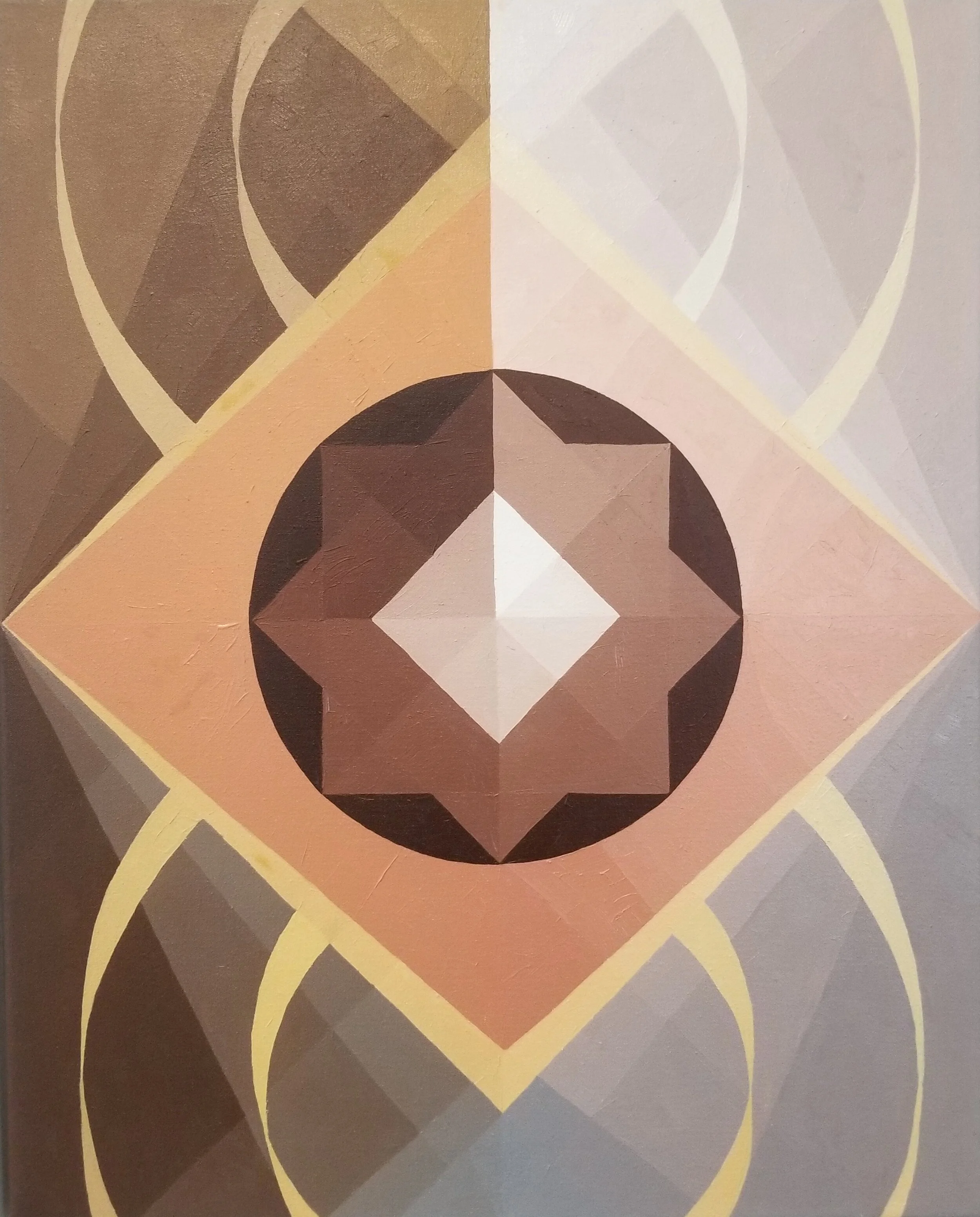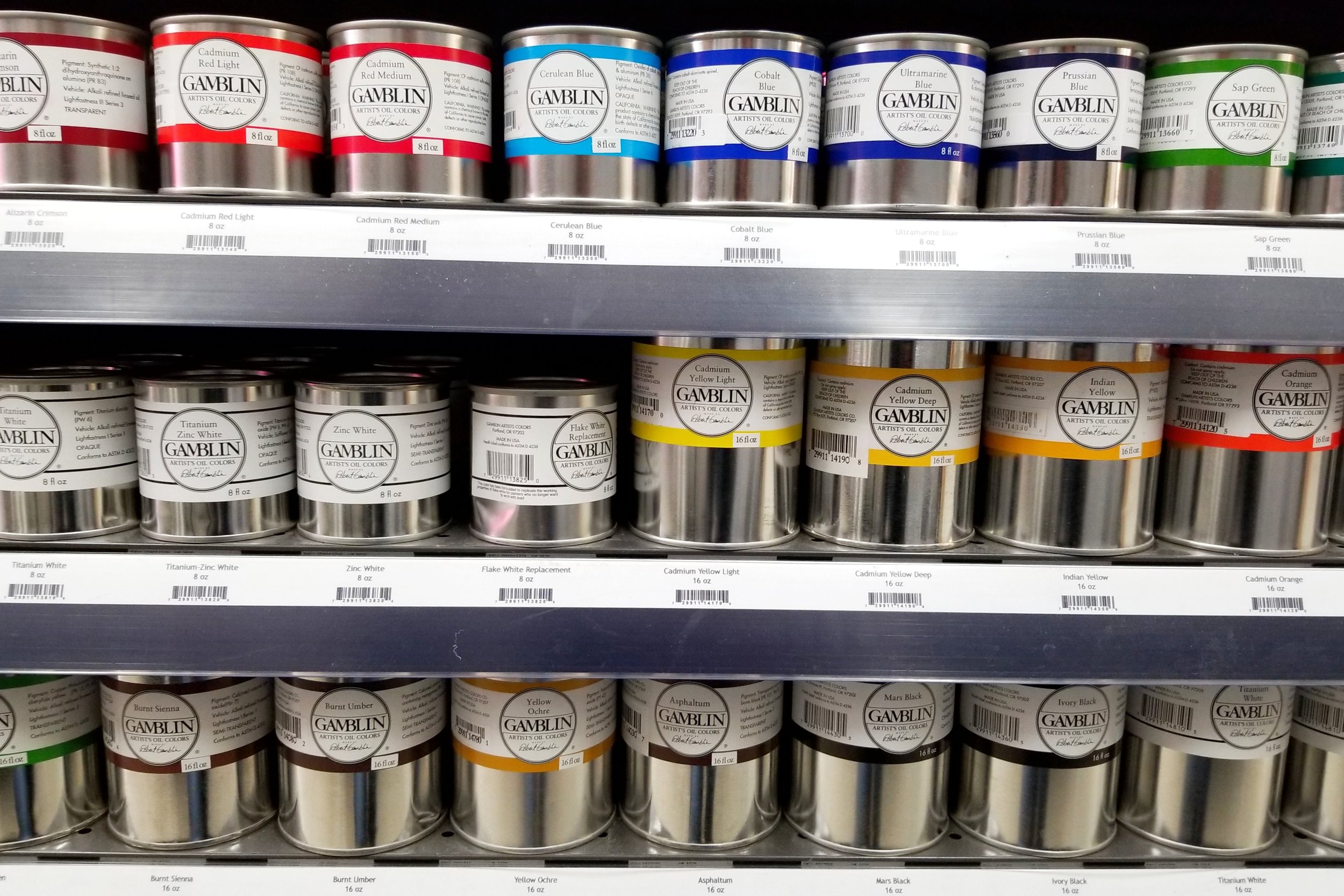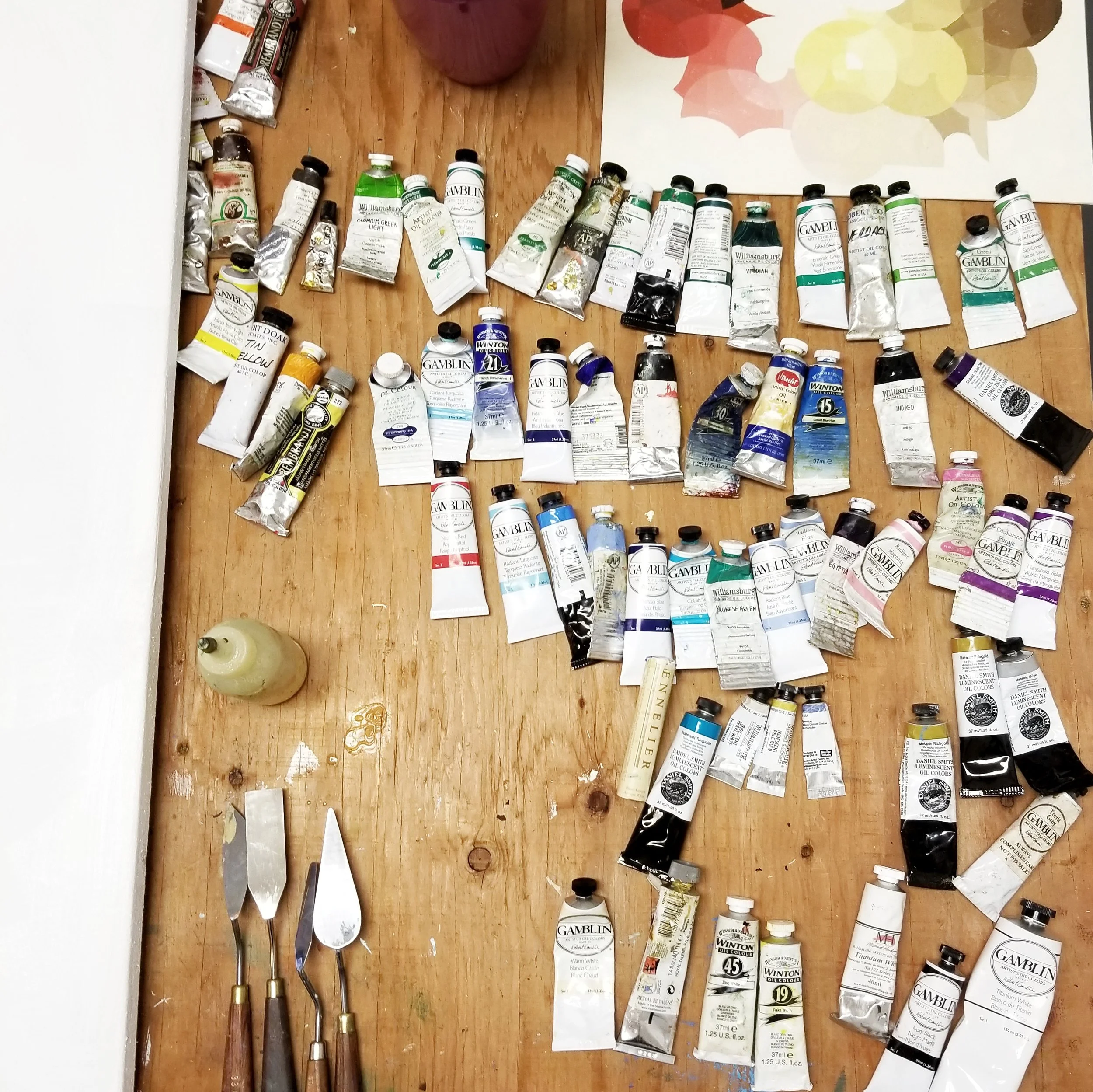22 Day Jobs To Support Your Art Career
The truth is, it takes a long time to learn how to make a living as an artist.
When you are a full time artist, you aren’t just a painter, you’re also a small business owner. I wish we lived in a world where we could just make art and not worry about the rent but, alas. Learning the skills you need to have a profitable art business will come from many different teachers over many years.
Starting an art career is an exhilarating journey, but it often requires juggling between creating art and paying the bills. And honestly, it's wise to find a balance between the two, especially when you're beginning.
The key is to find jobs that not only help with the financial aspect but also give you skills or experiences that can be beneficial to your art career. Ideally, these jobs should be manageable: not draining your energy or time excessively. The goal is to learn things in the day job that will help you with selling art, while also leaving you with enough creative juice to keep your art practice alive.
When I was starting out as an artist, I had 3 part time jobs to support my painting AND I was super lucky in that I didn’t have any student debt coming out of art school. Thanks to my parents for that! My journey to becoming a full time artist probably would have taken 5 more years to get where I am now without that support. I want to say that becoming a full time artist does not mean that I wont pick up another day job in the future. Art sales are unpredictable and I don’t think it’s below me to pick up a side job for a season or two.
The jobs listed below are entry level, meant to be under 20 hours a week, and designed to give you skills to benefit your art career. When looking for a part time job, look for how they will help your skills, how you can use the tools of that job to boost your art. Some of these jobs may seem obvious, some will be more roundabout in their directness towards your art career.
In any job, think of the people you meet and the relationships you develop as potential future buyers of your artwork. You never know when a relationship with someone you meet at work will turn them into your collectors.
Find your current skill set:
Taking stock of one's skills is a critical step before day job hunting, as it can illuminate the types of roles that might be a good fit.
Here's an exercise designed to help identify your skills and strengths. Pull out your sketchbook and answer these as quick as you can. Short, concise answers will provide the most clarity. Circle any keywords that show up.
Skills Inventory Exercise:
Basic Skills Assessment:
What subjects or topics did you excel at in school?
What tasks or activities at your previous jobs did you feel most confident in?
Are you more comfortable with quantitative tasks (like budgeting or data analysis) or qualitative tasks (like writing or brainstorming)?
Technical Skills Assessment:
Are you proficient in any specific software or tools (e.g., Photoshop, Excel, specific coding languages)? List them all.
Have you undergone any formal training or certifications in particular fields? List them all, star your favorites.
Does your art require a specific skill set, such as photography or web design?
Interpersonal Skills Assessment:
Do you feel more at ease working in a team or independently?
How do you handle conflicts or disagreements?
Are you more of a leader or a follower in group settings?
How would you rate your communication skills, both written and verbal?
Organizational Skills Assessment:
How do you prioritize tasks when faced with multiple responsibilities?
Do you have experience organizing events, projects, or teams?
How do you typically handle deadlines and time management?
Creative Skills Assessment:
As artists, we tend to be visually skilled. Think about the work you create and break it down to it’s simplest actions. Can you recognize patterns quickly? Can you memorize shapes? Do you have excellent color sensitivity and matching abilites?
How do you approach problems—do you stick with traditional methods or think outside the box?
Soft Skills & Traits Assessment:
How do you handle stress or pressure?
How do you get yourself to focus?
Are you more detail-oriented or big-picture-focused?
How do you respond to feedback or criticism?
Learning & Adaptability Assessment:
How quickly do you feel you can pick up new skills or tools?
Can you recall a situation where you had to adapt to a sudden change? How did you manage it?
What's a new skill you've learned in the past year?
When you don’t know how to do something, how do you go about getting the answer? (How do you research things?)
Personal Interests & Passions:
What activities or topics genuinely excite you or make time fly by?
Are there causes or issues you're particularly passionate about?
How do you typically spend your free time?
Networking & External Feedback:
What do close friends or colleagues often commend you for?
Are there tasks or responsibilities people usually turn to you for, both in professional and personal settings?
Reflecting on Past Experiences:
Thinking back to past jobs, projects, or roles: what tasks did you excel at or enjoy most?
Were there tasks you struggled with or preferred to avoid?
What have been some of your proudest accomplishments, and what skills did they require?
Once you've thoroughly answered these questions, review your responses and highlight recurring themes or frequently mentioned skills. This will give you a clearer picture of your strengths and areas of expertise, which can guide your day job search.
By aligning job possibilities with your identified skills and passions, you can ensure a more fulfilling and productive work experience. Remember, the goal isn't just to find a job, but to find the right job!
Let’s dive into a list of part-time jobs that can benefit your budding art career:
Art World Jobs
These jobs are directly related to the art work and have obvious connections, they may also be the most challenging to get, depending on where you live. I would still try for these positions, even if you don’t feel super confident in your abilities.
Art Gallery Assistant
What it entails: Assisting in the operations of an art gallery, from setting up exhibitions to dealing with clients and artists.
Why it’s beneficial: This job offers you an inside look at the art world. You'll gain knowledge about how galleries operate, network with other artists, and even get insights on promoting and selling art. This can easily turn into a full time position.
Approach: Attend local art exhibitions and connect with gallery owners or other staff. First Thursdays are your best friend for this job. Express your interest in the art world and ask about potential openings or internships.
Sites: Indeed, Glassdoor, LinkedIn, and local art gallery websites. List your favorites to visit and go directly to their sites.
Needs: A resume highlighting any art-related coursework or experiences, genuine passion for art, and excellent interpersonal skills. You’ll need art related references as well.
Art Supply Store Clerk
What it entails: Helping customers with their art supply needs, restocking, and maintaining the store's appearance.
Why it’s beneficial: You'll familiarize yourself with various art materials, learn about new tools and techniques, and get discounts on art supplies. It's a win-win!
Approach: Visit local art supply stores/websites and inquire about part-time positions. Having firsthand knowledge or enthusiasm about art can be a bonus.
Sites: Indeed, Snagajob, company websites. Blick has many stores nationwide.
Needs: Familiarity with art supplies, customer service skills, and a friendly demeanor.
Freelance Graphic Designer
What it entails: Taking up short-term projects to design logos, business cards, or even social media graphics.
Why it’s beneficial: This hones your digital art skills, offers flexibility, and teaches you about the business side of art.
Approach: Create an online portfolio showcasing your designs. Engage in online design communities and offer services on freelancing platforms.
Sites: Behance, Dribbble, Upwork, Fiverr
Needs: A strong portfolio, proficiency in design software (like Adobe Creative Suite), and good communication skills.
Photography Assistant
What it entails: Assisting photographers during shoots, managing equipment, or even handling post-production tasks.
Why it’s beneficial: You'll gain insights into framing, lighting, and the overall creative process, which can be applied to your own art.
Approach: Reach out to local photographers, offering assistance. Join photography clubs or groups to network.
Sites: LinkedIn, Indeed, local photography forums or groups on Facebook. Keep an eye out on the wedding industry for this.
Needs: Basic knowledge of photography equipment and techniques, flexibility, and a willingness to learn. Having a portfolio of your own work is great, but some photographers need help other than taking pictures.
Art Class/Workshop Assistant
What it entails: Helping out during art workshops, organizing materials, or even teaching some basics to attendees.
Why it’s beneficial: You'll learn by teaching, refine your own skills, and make connections in the art community.
Approach: Connect with local art schools, community centers, or independent artists who conduct workshops. Gage Academy in Seattle is a great option to those local to Brush Work podcast.
Sites: Eventbrite, Meetup.com, local community and art school websites. Don’t forget about drink n’ draw businesses.
Needs: A foundation in the specific art form being taught, organizational skills, and patience.
Museum Attendant
What it entails: Guiding visitors, ensuring the safety of the exhibits, or answering questions about the displayed art.
Why it’s beneficial: Surrounding yourself with art and history will inspire and educate you. Plus, you'll get to interact with art enthusiasts regularly.
Approach: Visit local museums and inquire about job or volunteer opportunities. Express genuine interest in art history or the specific themes of the museum.
Sites: Museum websites, LinkedIn, Indeed
Needs: Good communication skills, knowledge or willingness to learn about the exhibits, and a professional demeanor.
Custom Framing Specialist
What it entails: Helping customers choose frames for their art, photographs, or memorabilia and then assembling those frames.
Why it’s beneficial: This job will give you insights into how presentation can enhance artwork, a skill you can apply when showcasing your own pieces. This could easily become a full time job
Approach: Engage with stores that offer framing services, such as craft stores, photography studios, or specialized framing shops.
Sites: Company websites, Indeed, Snagajob
Needs: Detail-oriented mindset, some knowledge of art presentation, and customer service skills.
Art Blogger/Reviewer
What it entails: Writing about current art events, exhibitions, or even doing reviews on art supplies.
Why it’s beneficial: Not only does it improve your writing and analytical skills, but it also keeps you updated with current art trends.
Approach: Start your own art blog or contribute to established ones. Engage with the art community by attending events and writing reviews or summaries. Put in some ad’s to generate more income.
Sites: WordPress, Medium, Blogger
Needs: Strong writing skills, analytical thinking, and a keen interest in keeping up with art trends.
Marketing, Networking, Organizational Jobs
When you’re trying to build a full-time art career, understanding the business and marketing side of things is just as important as honing your craft. If you can gain experience in social media, marketing, networking, and organization, you’re giving yourself a huge advantage. Here are some part-time jobs that can help you learn these valuable skills:
Social Media Coordinator for a Small Business or Local Artist
What it entails: Managing social media platforms, creating content, scheduling posts, and engaging with followers.
Why it’s beneficial: You’ll learn about branding, audience engagement, and the algorithms of various social media platforms.
Approach: Networking is crucial. Connect with small businesses or local artists on platforms like LinkedIn, Instagram, or Twitter.
Sites: LinkedIn, Indeed, Glassdoor
Needs: A strong social media presence, a portfolio of content, and potentially some analytics to show your past successes.
Marketing Assistant at a Local Gallery or Art Institution
What it entails: Assisting in the development and execution of marketing campaigns, event promotions, and possibly content creation.
Why it’s beneficial: It provides insights into how marketing campaigns are crafted and executed in the art world.
Approach: Attend local art events or gallery exhibitions and network with attendees. Cold call emails work great too!
Sites: Internship.com, LinkedIn, company websites
Needs: A resume highlighting any relevant coursework or experience, a cover letter expressing interest in the art world, and enthusiasm!
Networking Event Assistant
What it entails: Helping organize and coordinate networking events (or if you’re lucky, art shows), managing guest lists, and possibly handling communications.
Why it’s beneficial: You'll meet a lot of professionals in many fields, understanding the dynamics of networking events and building relationships. I’ve used this to get several commissions for office spaces in the past.
Approach: Reach out to local art organizations, event management companies, or art venues.
Sites: Local event websites, Meetup.com, Eventbrite (for events where you can network)
Needs: Good organizational skills, excellent communication abilities, and possibly some event planning experience.
Administrative Assistant at an Art Organization
What it entails: Handling emails, scheduling, inventory management, and other organizational tasks.
Why it’s beneficial: You'll understand the behind-the-scenes operations of art organizations and learn key organizational skills. It doesn’t have to be an art organization to nail down these skills however. They are extremely transferable.
Approach: Connect with your favorite shops, organizations, non-profits, and more.
Sites: Indeed, LinkedIn, local organization websites. Word of mouth can be really powerful for this postion.
Needs: Organizational skills, familiarity with tools like Microsoft Office or Google Suite, and excellent communication.
Sales Representative for Art Supplies or Crafts Store
What it entails: Selling products, managing customer relationships, and maybe even handling some marketing responsibilities.
Why it’s beneficial: It will teach you about sales techniques, customer management, and possibly inventory management.
Approach: Visit local art stores, craft stores, or even big chains that have an art section.
Sites: Company websites, Indeed, Snagajob
Needs: Good communication skills, knowledge of art materials, and a customer-friendly attitude.
Art Fair or Craft Show Coordinator
What it entails: Organizing vendors, promoting the event, setting schedules, and ensuring everything runs smoothly.
Why it’s beneficial: You'll learn logistical planning and how to coordinate large events, plus it's an excellent networking opportunity.
Approach: Engage with local community centers, art organizations, or artists who regularly participate in fairs.
Sites: Local community websites, Eventbrite, Meetup.com
Needs: Organizational skills, networking ability, and some knowledge of the local art scene.
Membership Coordinator for Art Organizations or Clubs
What it entails: Managing members, organizing events, communicating updates, and promoting membership benefits.
Why it’s beneficial: You'll get firsthand experience in managing a community, organizing events, and understanding what attracts and retains members.
Approach: Reach out to local art clubs, organizations, or societies.
Sites: LinkedIn, local organization websites
Needs: Organizational skills, good communication, and possibly CRM (Customer Relationship Management) software knowledge.
Personal Assistant to a Professional Artist or Art Influencer
What it entails: Handling emails, scheduling, assisting in social media management, and possibly even assisting during art sessions or workshops.
Why it’s beneficial: You’ll get a behind-the-scenes look at how successful artists manage their careers and will learn from their experiences.
Approach: Follow artists you admire on social media platforms and look for opportunities or directly express your interest.
Sites: Instagram, Twitter, LinkedIn
Needs: Flexibility, a broad range of skills (from social media management to organizational abilities), and passion for art.
Etsy or Online Art Store Manager for a Local Artist
What it entails: Listing products, managing orders, handling customer service, and promoting the store.
Why it’s beneficial: You'll understand the dynamics of online sales, customer management, and e-commerce promotion.
Approach: Connect with local artists who have online shops and offer your services.
Sites: Etsy, Instagram, Facebook (many artists use these platforms)
Needs: Familiarity with online marketplaces, good organizational skills, and some marketing or social media knowledge.
The art world is vast, and opportunities abound for those willing to look for them. By diving into roles that expose you to the business and marketing side of things, you're setting yourself up for a more holistic understanding of what it takes to succeed as an artist.
Remote Day Jobs
Remote work has become increasingly popular and accessible, offering flexibility that can be especially beneficial for budding artists. Here are five part-time, remote job options that can enhance the skills and experiences beneficial for an art career:
Remote Social Media Manager for Art Platforms
What it entails: Overseeing the social media channels of art platforms, creating and curating content, analyzing engagement data, and growing the platform's online presence.
Why it’s beneficial: This job will deepen your understanding of how to effectively use social media to reach art audiences worldwide. You'll also get to know about different art trends from various cultures and regions.
Approach: Engage with art platforms on social media.
Sites: Remote.co, We Work Remotely, LinkedIn
Needs: Proven social media management skills, a strong online portfolio, and knowledge about global art trends.
Virtual Art Class Coordinator
What it entails: Organizing online art classes, coordinating with instructors, managing schedules, promoting classes, and handling participant communications.
Why it’s beneficial: You'll be exposed to a variety of teaching methods and art techniques. Additionally, this role can help you hone your organizational and promotional skills in the digital space.
Approach: Engage with online art teaching platforms or artists who offer virtual classes.
Sites: Udemy, Skillshare, Coursera (for art courses where you can connect with instructors)
Needs: Organizational skills, experience with online tools like Zoom, and a passion for art education.
Remote Customer Support for Art Tools/Software
What it entails: Assisting users of art-related software or apps, troubleshooting issues, and providing feedback to the development team.
Why it’s beneficial: You’ll gain a deep understanding of digital art tools, which can be beneficial if you delve into digital art. Plus, the role helps develop your communication and problem-solving skills.
Approach: Reach out directly to companies that create art tools or apps.
Sites: Remote.co, We Work Remotely, company websites
Needs: Familiarity with the specific tool or app, good communication skills, and a troubleshooting mindset.
Online Art Magazine Contributor/Editor
What it entails: Writing, editing, or curating content for online art magazines or blogs. This may include interviews, reviews, tutorials, or trend pieces.
Why it’s beneficial: This will keep you updated with the global art scene, improve your writing and research skills, and provide networking opportunities with artists and other contributors.
Approach: Write and submit articles or pitches to online art magazines or blogs.
Sites: Online art magazines, Medium, WordPress
Needs: Strong writing and editing skills, a portfolio of articles, and expertise in specific art niches.
Remote Digital Marketing Assistant for Art Brands
What it entails: Assisting with online marketing campaigns, email newsletters, SEO efforts, or affiliate programs for brands that cater to artists.
Why it’s beneficial: You'll gain insights into the digital marketing world, understand how brands appeal to artists, and learn strategies that can later be applied to market your own art.
Approach: Connect with art brands or companies that cater to artists.
Sites: Remote.co, We Work Remotely, LinkedIn
Needs: Digital marketing knowledge, familiarity with tools like MailChimp or Google Analytics, and an understanding of the art market.
Remote positions offer a unique advantage, as they typically offer greater flexibility in terms of work hours and environment. This can be especially beneficial for artists, allowing for a balance between work commitments and personal art projects. Dive into these opportunities, and you might find the perfect role that complements your journey as an artist.
Happy day job hunting!
Host and artist Stephanie Scott breaks down the practicality of the art career with topics including: sustainable creative practices, social media skills, and the mindsets that keep it all together. New episodes every Tuesday!
Instagram: https://www.instagram.com/stephaniescott.art/
Website: http://www.stephaniescott.art/brushwork
Music by @winepot https://www.instagram.com/thewinepot/
Podcast Cover photo by Maryna Blumqvist https://instagram.com/picturemaryna
